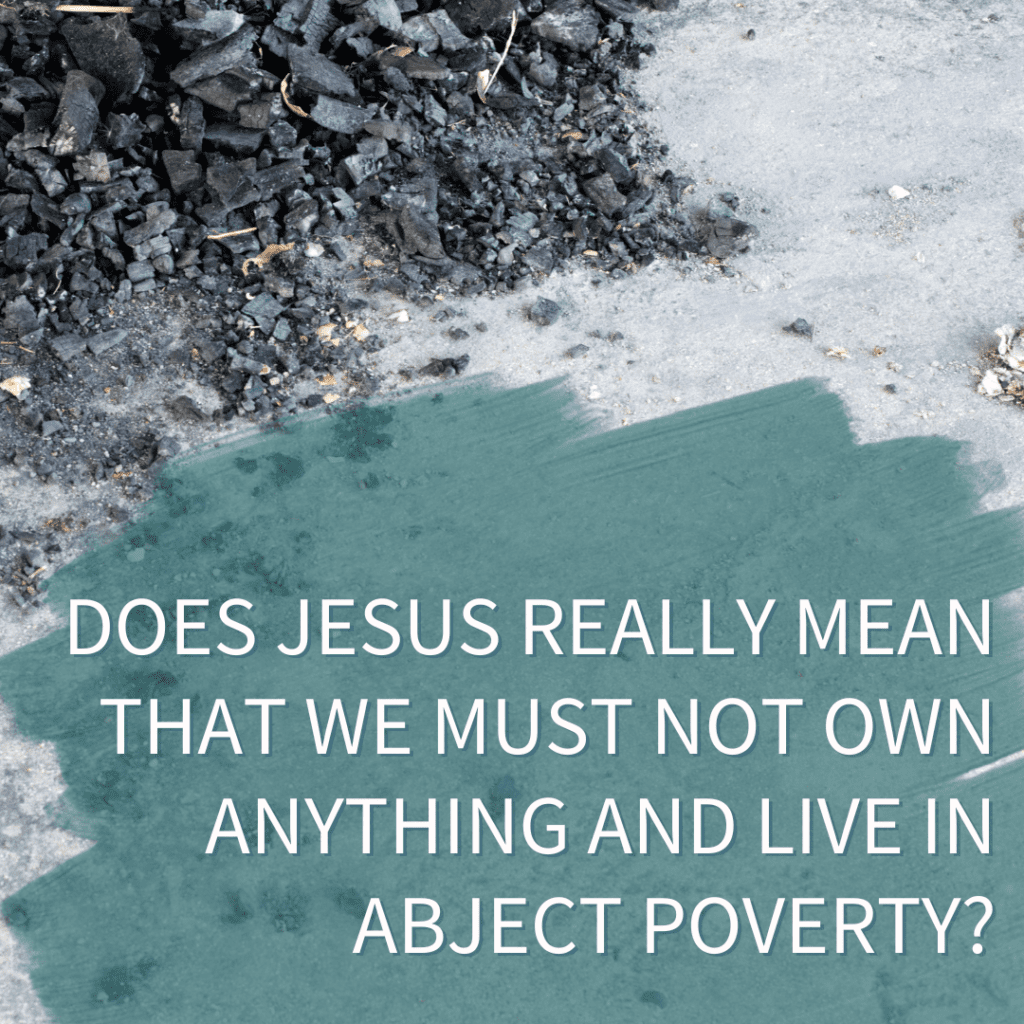Did Jesus Really Mean That?

Jesus, in speaking to the crowds, makes what seems to our modern ears to be a very radical demand – “anyone of you who does not renounce all his possessions cannot be my disciple” (Lk 14:33). Does Jesus really mean that we must not own anything and live in abject poverty?
Some saints throughout history took those words of Jesus literally. They gave away all that they had, began to beg for their food and preached the Gospel with great vigor. St. Francis of Assisi is an example of such radical poverty. But are most of us who live in 21st century America required to renounce all we have in order to become a disciple of Jesus? Maybe, but maybe not.


God still calls some people today to live a life of voluntary poverty; those who join certain religious communities are examples of that. But for most of us, discipleship may not mean that we necessarily live in complete poverty, but it does require a certain poverty of spirit, a willingness to subordinate everything to our relationship with the Lord.
Sin (pride, selfishness, lack of faith, etc.) may make such a whole-hearted commitment seem impossible. But all is possible with God. With His divine help, we can learn to properly order the things of this life and live “in Christ,” so that all our relationships, possessions and daily achievements are appreciated, not for themselves alone, but in the context of God’s providence and in the context of his plan for our lives.
Our love of family and our use of possessions becomes purified when it flows from our love of God. We may not be able to detach from the temptations of wealth, fame and possessions on our own. Thus, we come to Mass each week to repent, to pray for ourselves and others and to seek divine grace so that our hearts will grow ever more deeply in love with our Lord and become disciples after the heart of Jesus.
Sincerely yours in Christ Jesus, the Way, the Truth and the Life,


